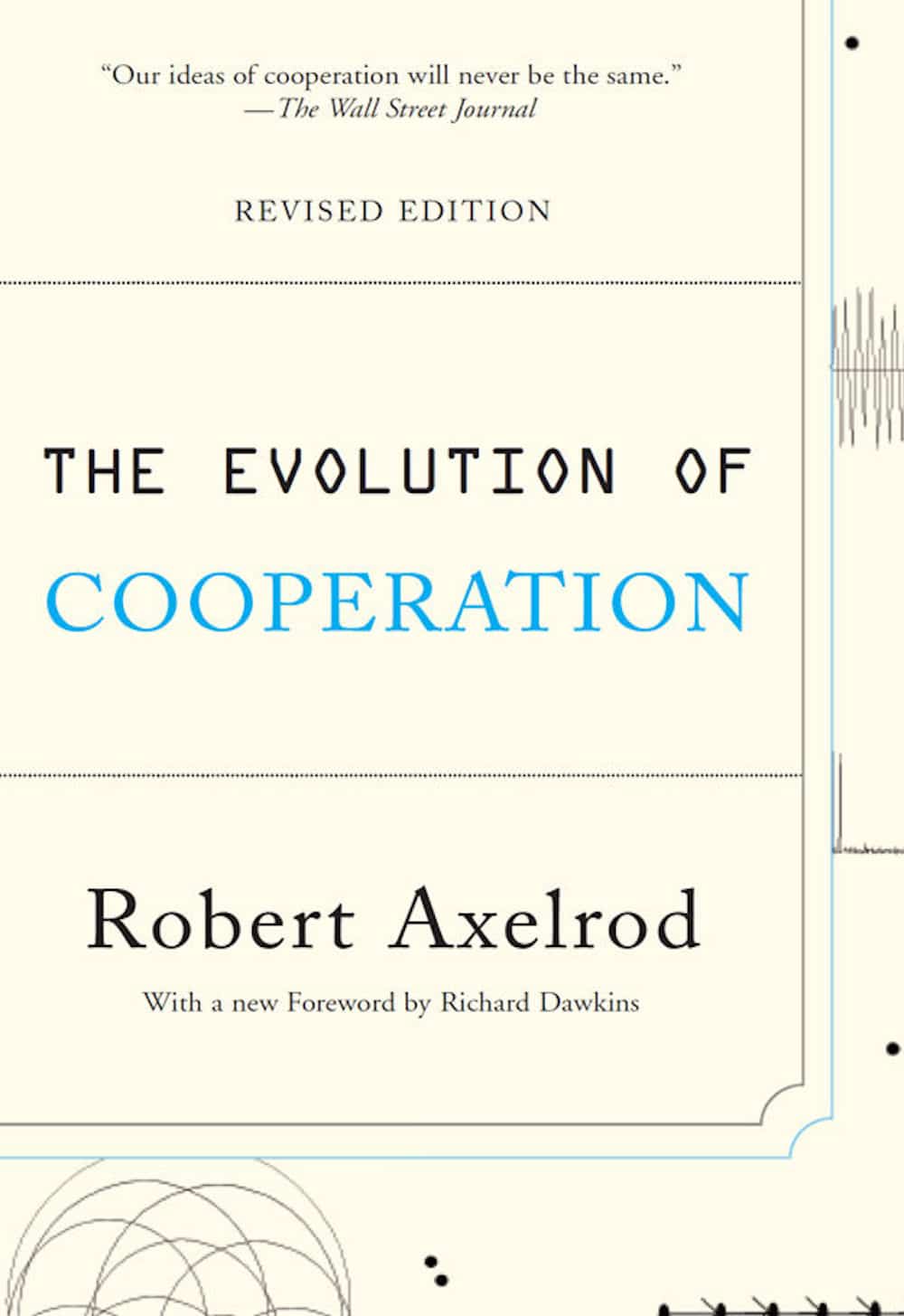The material in The Evolution of Cooperation is a great example of the Baader-Meinhof phenomenon: once you read it, you notice it everywhere.
The book is a collection of Axelrod’s essays on the iterated prisoner’s dilemma, a concept in game theory with broad application in politics, sociology, biology, and anthropology. Axelrod describes his experiments with computer-based “tournaments” in which strategies submitted by participants are run through the iterated prisoner’s dilemma hundreds of times to determine if there can be a winning tactic.
The result is surprising: a simple tactic called “tit-for-tat” wins. Despite many brilliant minds working to devise complicated schemes to take advantage of tit-for-tat’s naïveté, nobody can top it. Axelrod explores how tit-for-tat uses cooperation to excel at positive-sum games, and how the resilience of cooperative thinking gives rise to a wide variety of observed behaviors.
Cooperative thinking, along with an understanding of positive-sum games, is a great mental model.
